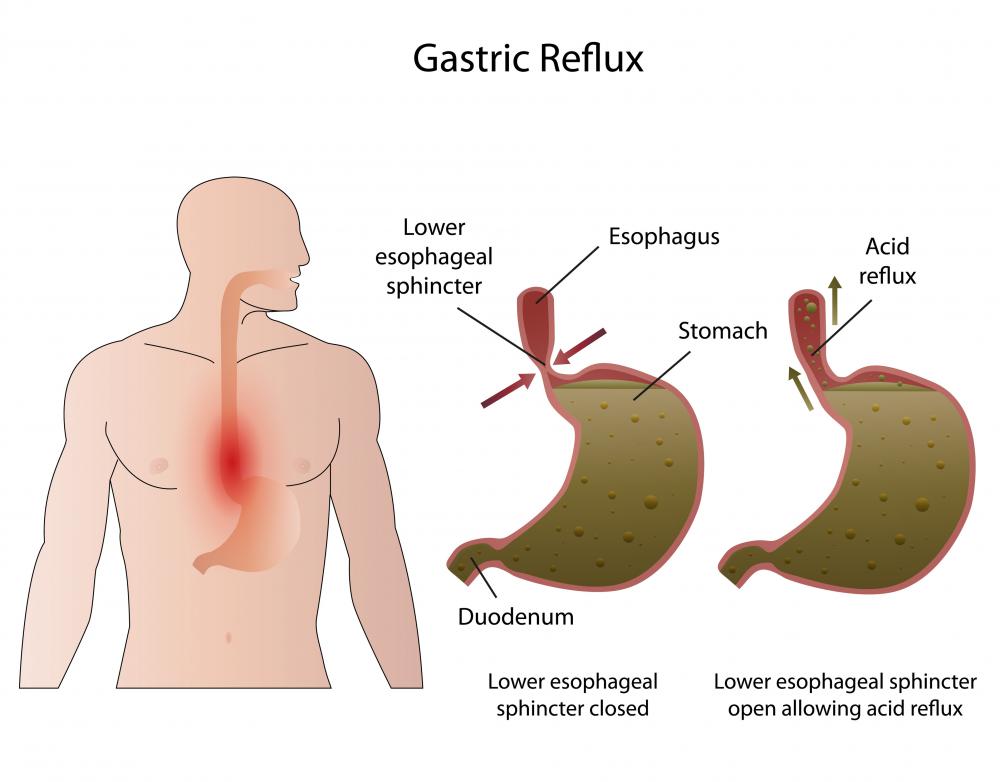At WiseGEEK, we're committed to delivering accurate, trustworthy information. Our expert-authored content is rigorously fact-checked and sourced from credible authorities. Discover how we uphold the highest standards in providing you with reliable knowledge.
What is Eosinophilic Esophagitis?
Eosinophilic esophagitis is an inflammation of the esophagus characterized and caused by the presence of large numbers of white blood cells. These blood cells are part of the body's immune system. In healthy patients, they are not found in the esophagus, although they may be located in other areas of the gastrointestinal tract. Patients with eosinophilic esophagitis have white blood cells present in large numbers in their esophagi, and they can experience a range of symptoms.
People with eosinophilic esophagitis usually have difficulty swallowing, heartburn that does not respond to medication, and may experience weight loss and indigestion. The condition is sometimes challenging to diagnose because a physician may think that it is simply an extreme form of reflux. If an endoscopy is performed, the esophagus can show tell-tale signs of inflammation or it may look perfectly healthy, and a biopsy is critical for diagnosis.

Some patients with eosinophilic esophagitis develop ridges or furrows in the esophagus as a result of the chronic inflammation. These can be clear diagnostic indicators. Other patients have plaques of white blood cells visible on the esophageal lining. In other cases, the changes are only visible on a microscopic level, with numerous white blood cells interspersed in the normal cells of the esophagus.

Treatment for eosinophilic esophagitis can include medications to control stomach acid, suppress inflammation, and address the immune malfunction that leads to the profusion of white blood cells. If a patient has known allergies that might be causing the explosion of white blood cells, these must also be treated. Dietary modifications such as avoiding common allergens and trigger foods are usually recommended. The patient will need to make permanent lifestyle changes to avoid exposure to these foods so that the inflammation does not recur.

The causes of eosinophilic esophagitis are not well understood. It is believed to be related to allergies, including not just food allergies but exposure to inhaled allergens. People with a history of asthma and allergic reactions are more at risk, and the condition is also more common in men. Some researchers have theorized that autoimmune disorders may also lead to eosinophilic esophagitis, with the disruption in the immune system leading to inflammation in the esophagus and other regions of the body. People can benefit from the latest research on this condition by seeing a gastroenterology specialist who has access to the newest treatment protocols, information about clinical trials, and other information that may be helpful for patient care.
AS FEATURED ON:
AS FEATURED ON:

















Discuss this Article
Post your comments